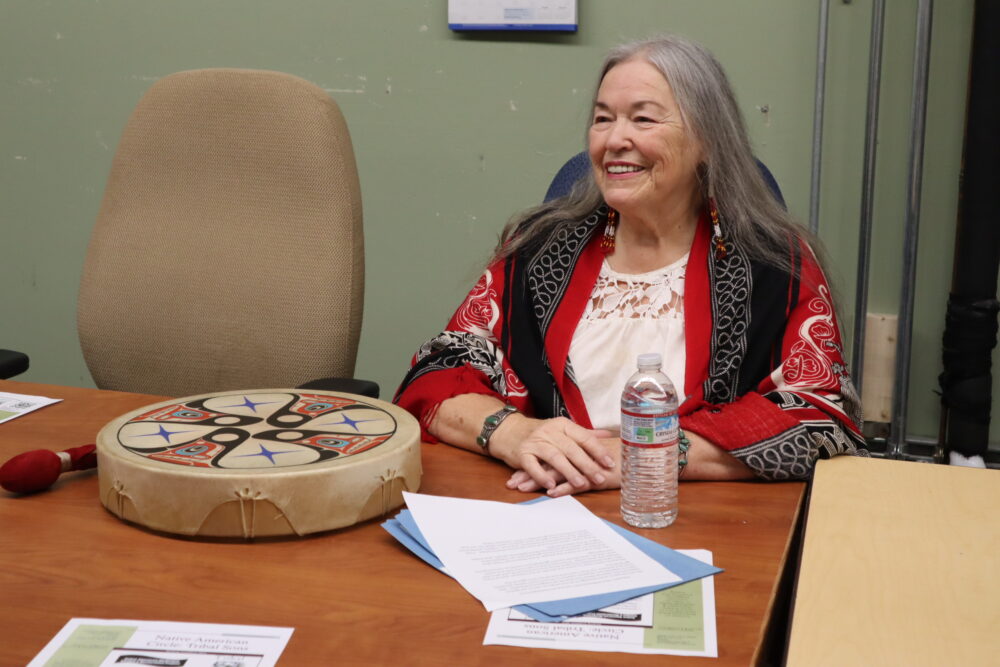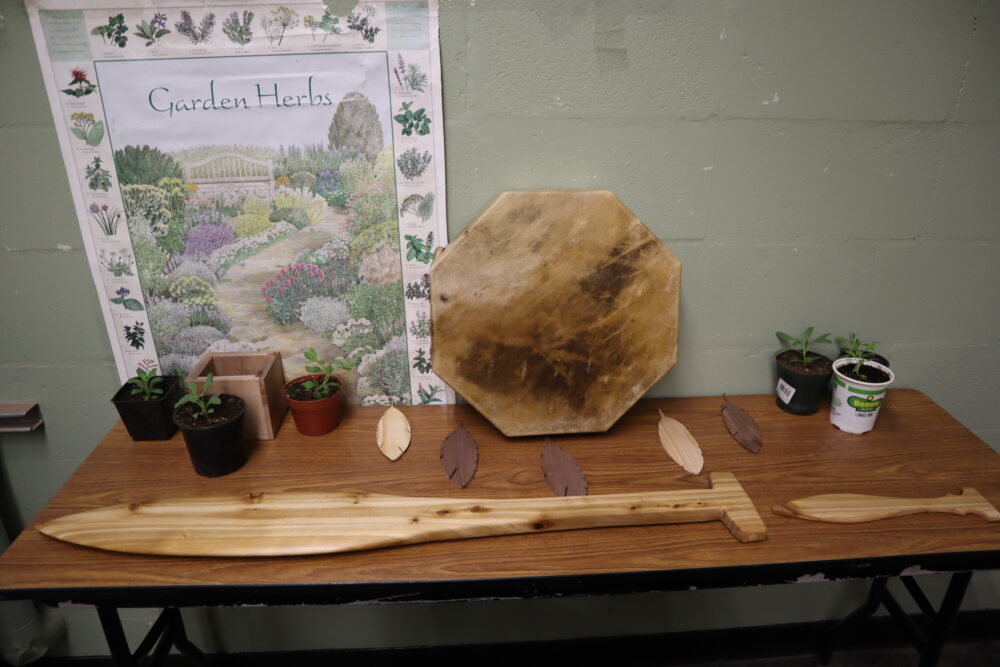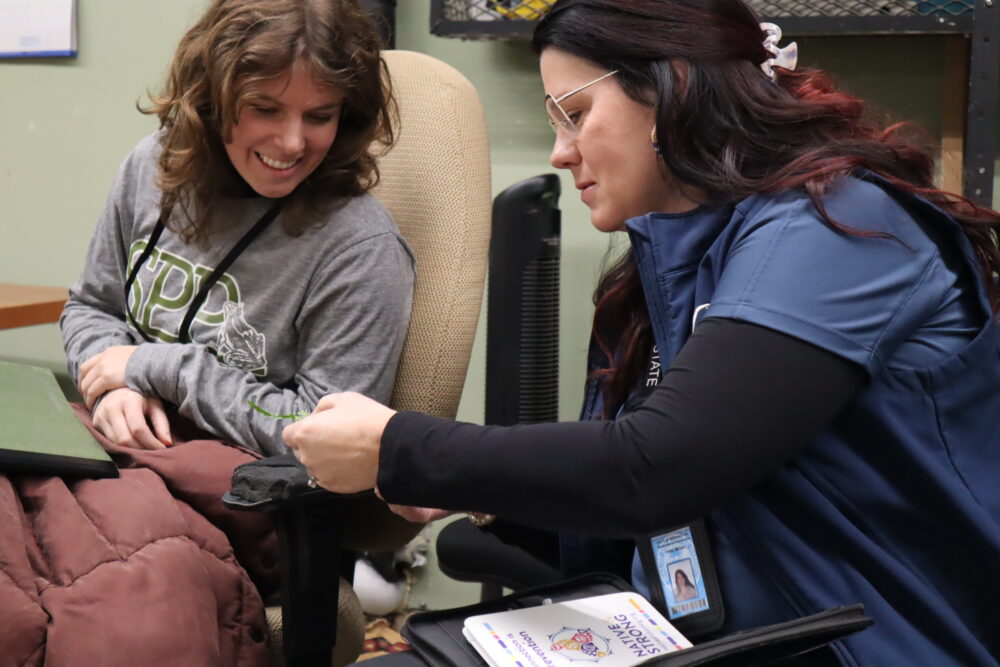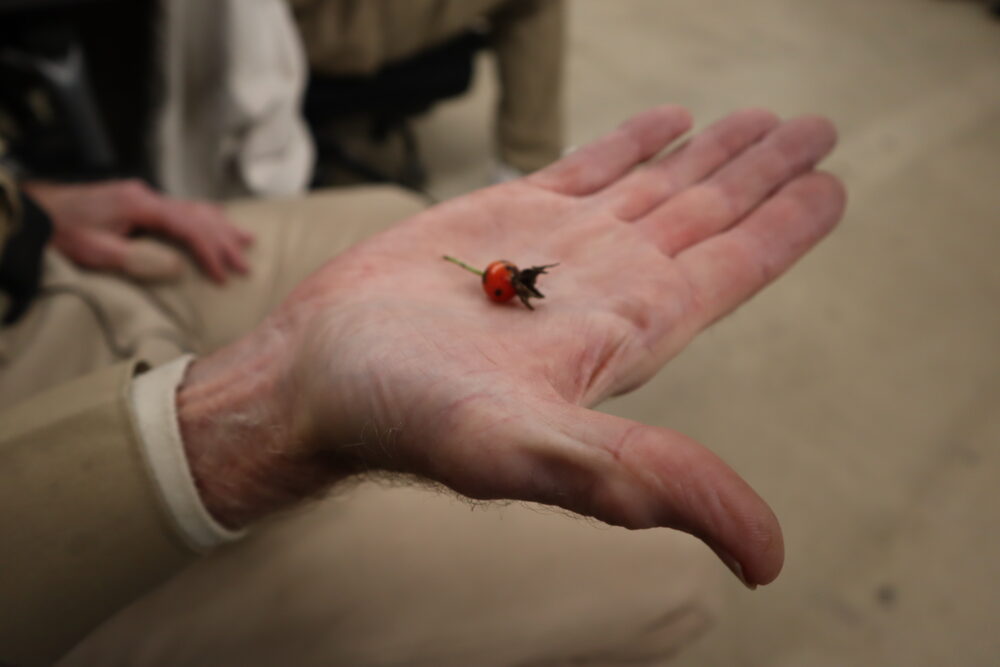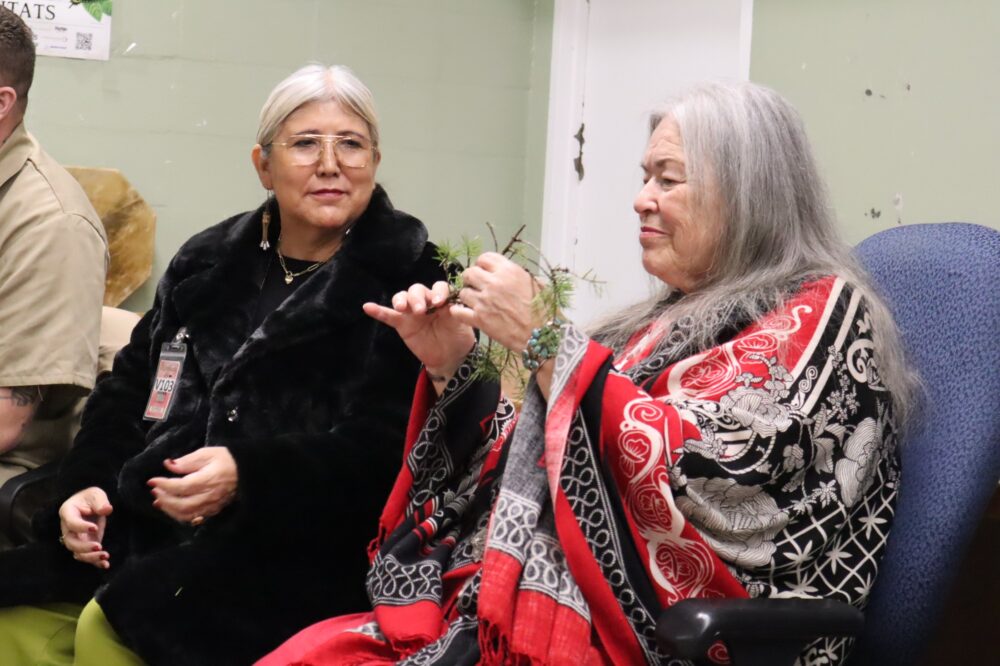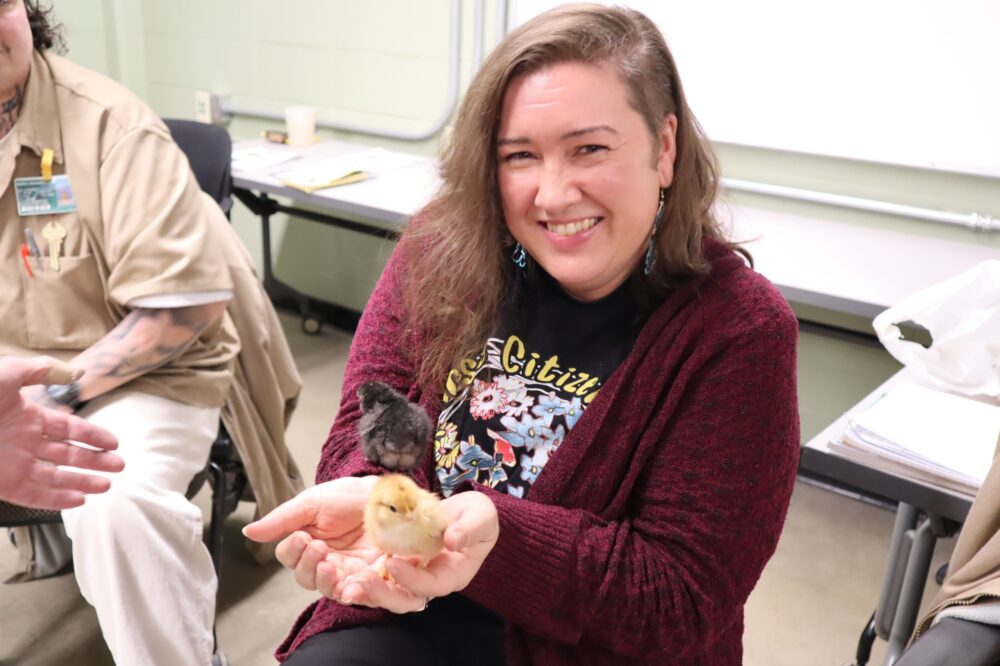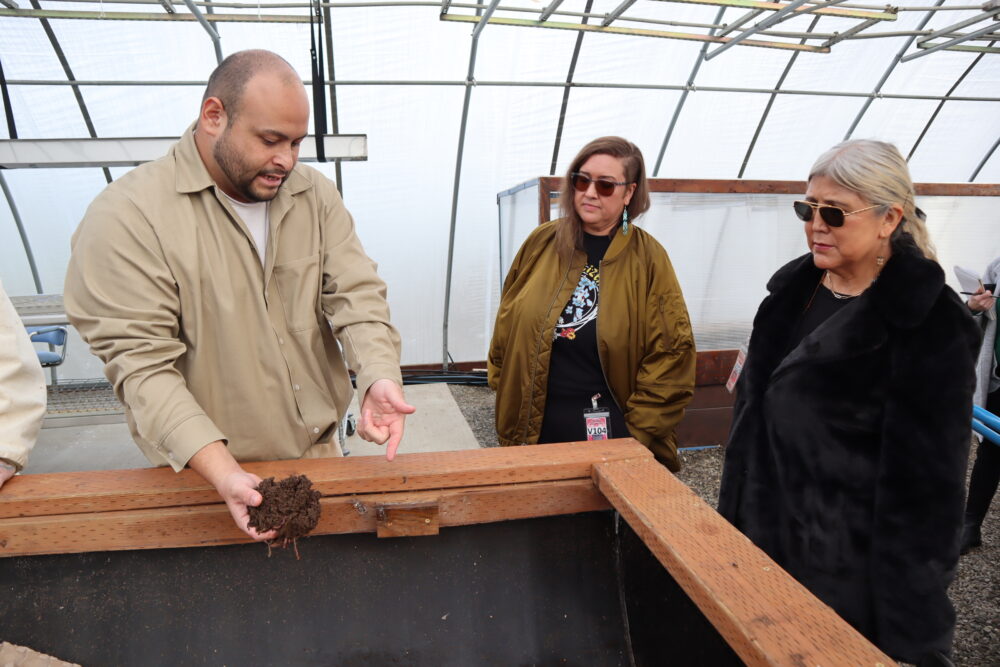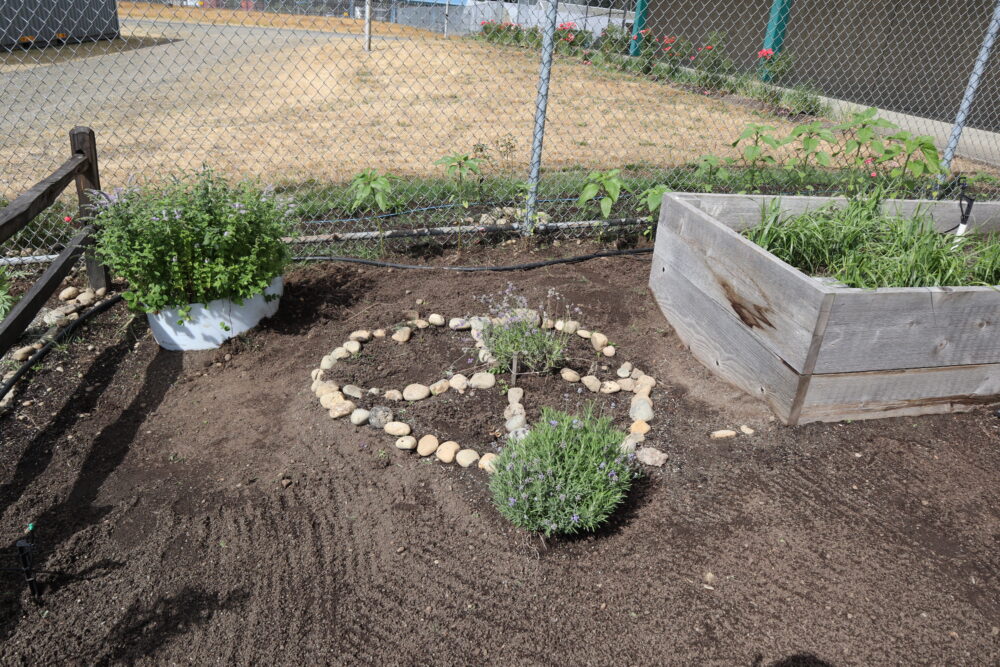SPP recently had the honor of collaborating with Evergreen Native American and Indigenous Studies Faculty Kendra Aguilar to offer the first of many cultural workshops at Washington Corrections Center. The workshop was hosted by the Tribal Sons, a group of Indigenous incarcerated individuals at WCC. Tribal Sons was created to “promote the wellness and rehabilitation of [Indigenous] people through healing with Indigenous ceremonies and traditions.” We were joined by cultural leader Carolyn Hartness, Evergreen Tribal Relations Liaison Lyn Dennis, and DOC Director for Person Centered Services Megan Pirie.
After introductions and a welcome led by Carolyn Hartness, Kendra Aguilar facilitated the plant teachings workshop. Students were able to touch and hold different native plant cuttings as Aguilar spoke about the social-emotional skills that can be learned from each plant. In recognizing the strengths that different plants possess and what they contribute to their environment, students were encouraged to apply those skills to their own lives as well. During a break, visitors got to hold some baby chicks from the Sustainable Practices Lab (SPL) too!
The workshop concluded with a song and a tour led by Tribal Sons. SPP looks forward to expanding opportunities for cultural workshops in the future!
